A Wedding in Haiti
by Julia Alvarez
"Who knows why we fall in love with people who are nothing to us?" Julia Alvarez writes at the beginning of A Wedding in Haiti, a beautifully written and moving account that weaves an unusual road trip and family portrait into an unexpected journey of discovery. In 1997, while on a writing assignment in her native Dominican Republic, Alvarez and her husband, Bill Eichner, became the owners of 60 acres of deforested land that would ultimately become Alta Gracia, a 260-acre organic coffee farm/literary arts center. Some years later, they met Piti, a Haitian teenager working on a neighboring farm. "What I felt toward the boy was unaccountably maternal," Alvarez writes. "Somewhere in Haiti, a mother had sent her young son to the wealthier neighbor country to help the impoverished family. Every time I spotted [him], I felt the pressure of that mother's prayer in my own eyes." Soon Piti was working at Alta Gracia and had become part of Alvarez's extended family. One evening, in an attempt to assuage his homesickness, Alvarez assured Piti that when he married, she'd be at his wedding. "One of those bighearted promises," she writes, "that you never think you'll be called on to deliver someday." But in August 2009, Piti did indeed call on Alvarez, his madrina (godmother), to come to his wedding in a remote part of northern Haiti the following week.
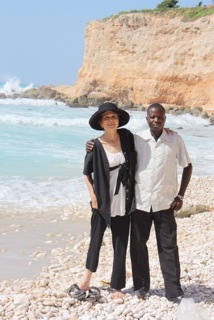
Alvarez and her husband dropped everything and left their home in Vermont for Alta Gracia, where they gathered supplies and a few extra travelers and set out. Despite being raised in the Dominican Republic, Alvarez had taken only one brief trip to Haiti a quarter-century before. It didn't take long for her to realize that crossing the border into Haiti involved a great deal of head-shaking, inspecting of documents, the phrase, "Is there any way we can resolve this now?" and, finally, the exchange of U.S. dollars. Once inside Haiti, Alvarez grew progressively uneasy with their vague directions and a route that included washed-out dirt roads that seemed to lead nowhere, dried riverbeds that threatened to flood, and a coating of fine white dust on everything. Despite all this, Alvarez, who includes several wonderful snapshots of the trip, found the landscape suffused with a sort of buoyancy, present in groups of laughing women selling mangoes on the road and an impromptu auto parts "shop" constructed from four poles and a blue tarp. The poverty of Haiti was startlingly clear, yet the families they encountered, rich in faith, were eager to share the little they had.
Improbably, Alvarez and her party reached the tiny town of Moustique, where Piti married Eseline (who had given birth to the couple's daughter, Ludy, four months before) in a sweet, joyful ceremony. Eseline's father, unimpressed with Piti and the fact that the couple had had relations before the marriage, was won over by the appearance of Alvarez and her husband.
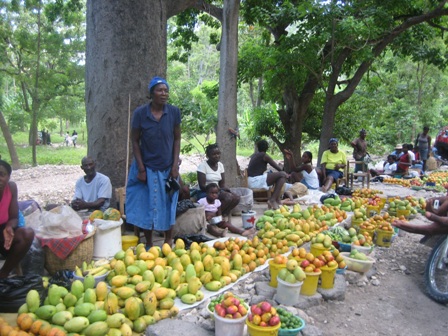
Returning to the Dominican Republic was not as smooth. Piti had failed to procure the necessary documents for his family to cross into the Dominican Republic, and Eseline, having never before ridden in a car, was violently carsick for most of the trip. Alvarez's description of a tense stand-off at the border (after which more money changed hands and the party was split up to travel across in buses) illustrates the conflict that has existed for centuries between the two nations and how poorly Haitians are treated in the Dominican Republic.
Almost a year later, a few months after Haiti's devastating earthquake, Alvarez and her husband decided to travel once more to Haiti with Piti, Ludy and Eseline, who had been suffering an indeterminate malady that Alvarez interpreted as homesickness. The ensuing journey makes up the second half of the book.
Although they tried a more conventional, no-bribes approach for their return trip, Alvarez and her family ran into a tangle of bureaucracy made infinitely worse by the earthquake. Once over the border, Alvarez found the surroundings recognizable but different in striking ways: the absence of huts with cheerful blue shutters and laughing women selling mangoes, the presence of tent cities and desperate people looking for any kind of sustenance. Yet Alvarez finds signs and signals of the Haitian spirit wherever she looks--businesses called Solution Garage and Easy Go Hotel, and a woman wearing a T-shirt that reads, "Stop Bitching: Start a Revolution."
In describing these two deeply affecting journeys into Haiti, Alvarez provides often humorous insights into her family relationships. She offers us a miniature yet beautifully illustrated portrait of her own marriage—the small stresses and complaints that arise between her and Bill as well as the deep satisfaction that comes from being united for so long. This kind of bond mirrors that of her own parents, both of whom were suffering from advancing Alzheimer's yet never lost each other or the memory of their great love. Ultimately A Wedding in Haiti is a deeply personal story of family and connection that casts a light on larger issues of global community and the need for unity, compassion and understanding as the first steps in humanitarian aid. --Debra Ginsberg



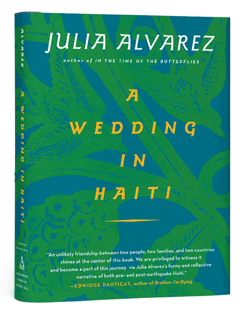


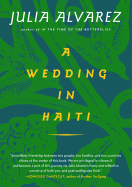

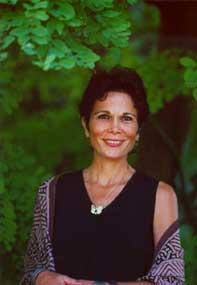 Julia Alvarez is the author of 19 books, including How the García Girls Lost Their Accents, In the Time of the Butterflies and the new A Wedding in Haiti. A writer-in-residence at Middlebury College, she and her husband, Bill Eichner, established Alta Gracia, an organic coffee farm/literacy arts center, in her homeland, the Dominican Republic.
Julia Alvarez is the author of 19 books, including How the García Girls Lost Their Accents, In the Time of the Butterflies and the new A Wedding in Haiti. A writer-in-residence at Middlebury College, she and her husband, Bill Eichner, established Alta Gracia, an organic coffee farm/literacy arts center, in her homeland, the Dominican Republic.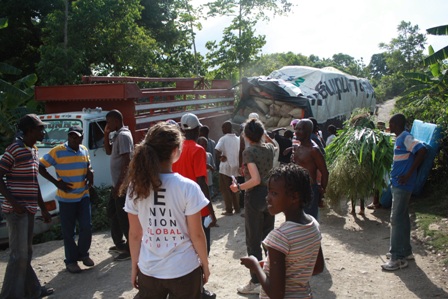
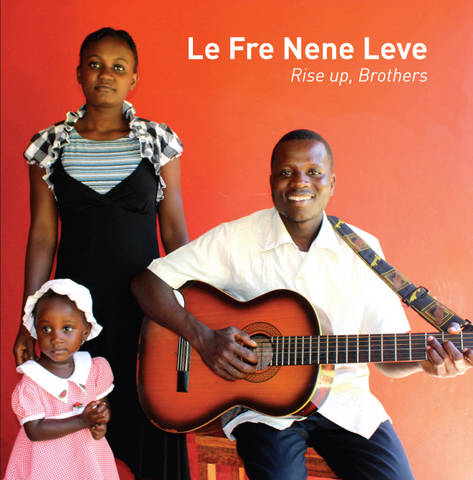 Meanwhile, Piti is cutting a CD! He has a wonderful singing voice, and he learned to play the guitar from a volunteer who came to Alta Gracia. With the help of my husband, Bill, and stepdaughter, Sara Eichner, an artist and graphic designer, we hope to have copies of the CDs with us on tour. Hey, if Martelly can become president, Piti can become a rock star!
Meanwhile, Piti is cutting a CD! He has a wonderful singing voice, and he learned to play the guitar from a volunteer who came to Alta Gracia. With the help of my husband, Bill, and stepdaughter, Sara Eichner, an artist and graphic designer, we hope to have copies of the CDs with us on tour. Hey, if Martelly can become president, Piti can become a rock star!